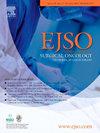Transparency in Externally Validated Models: A systematic review of machine learning vs. logistic regression for predicting colorectal anastomotic leakage
IF 2.9
2区 医学
Q2 ONCOLOGY
引用次数: 0
Abstract
Introduction
Colorectal resection carries a 2.8 %–30 % risk of anastomotic leakage. Machine learning can estimate risks and guide decisions, but clinical implementation remains inadequate due to transparency issues. This review assesses the performance and transparency of machine learning models compared to logistic regression.
Methods
A systematic review followed PRISMA guidelines. Medline, Embase, Web of Science, and Cochrane databases were searched for studies using Logistic Regression or Machine Learning with external validation for colorectal anastomotic leakage prediction. Data were extracted using CHARMS, risk of bias assessed with PROBAST, and transparency with TRIPOD + AI.
Results
Ten studies were included. Machine learning models were validated on smaller cohorts than logistic regression. Transparency scores ranged from 29 % to 63 %, averaging 45 % for logistic regression and 43 % for machine learning. Reporting of missing data was inconsistent, and external validation was limited. Most studies had a high risk of bias due to small sample sizes and low event counts.
Conclusion
In comparison to Logistic regression studies, machine learning studies are limited by small cohorts, low outcome numbers, and a lower level of transparency. Future research should prioritise transparency, adhere to TRIPOD + AI standards, and develop LR and ML models in parallel using the same datasets while ensuring separate models for colon and rectal surgery. Currently, these models are not yet suitable for clinical implementation; more robust and transparent models must be developed based on these recommendations before they can be applied in clinical practice.
外部验证模型的透明度:机器学习与逻辑回归预测结直肠吻合口瘘的系统综述
结直肠切除术有2.8% - 30%的吻合口漏风险。机器学习可以评估风险并指导决策,但由于透明度问题,临床应用仍然不足。与逻辑回归相比,本文评估了机器学习模型的性能和透明度。方法按照PRISMA指南进行系统评价。我们检索了Medline、Embase、Web of Science和Cochrane数据库中使用逻辑回归或机器学习进行结直肠吻合口瘘预测的研究,并进行了外部验证。使用CHARMS提取数据,使用PROBAST评估偏倚风险,使用TRIPOD + AI评估透明度。结果纳入10项研究。与逻辑回归相比,机器学习模型在更小的队列中得到验证。透明度得分从29%到63%不等,逻辑回归平均为45%,机器学习平均为43%。缺失数据的报告不一致,外部验证有限。由于样本量小,事件数少,大多数研究存在高偏倚风险。与Logistic回归研究相比,机器学习研究受限于队列小、结果数低和透明度较低。未来的研究应优先考虑透明度,坚持TRIPOD + AI标准,并使用相同的数据集并行开发LR和ML模型,同时确保结肠和直肠手术的独立模型。目前,这些模型尚不适合临床实施;在应用于临床实践之前,必须根据这些建议开发更健壮和透明的模型。
本文章由计算机程序翻译,如有差异,请以英文原文为准。
求助全文
约1分钟内获得全文
求助全文
来源期刊

Ejso
医学-外科
CiteScore
6.40
自引率
2.60%
发文量
1148
审稿时长
41 days
期刊介绍:
JSO - European Journal of Surgical Oncology ("the Journal of Cancer Surgery") is the Official Journal of the European Society of Surgical Oncology and BASO ~ the Association for Cancer Surgery.
The EJSO aims to advance surgical oncology research and practice through the publication of original research articles, review articles, editorials, debates and correspondence.
 求助内容:
求助内容: 应助结果提醒方式:
应助结果提醒方式:


